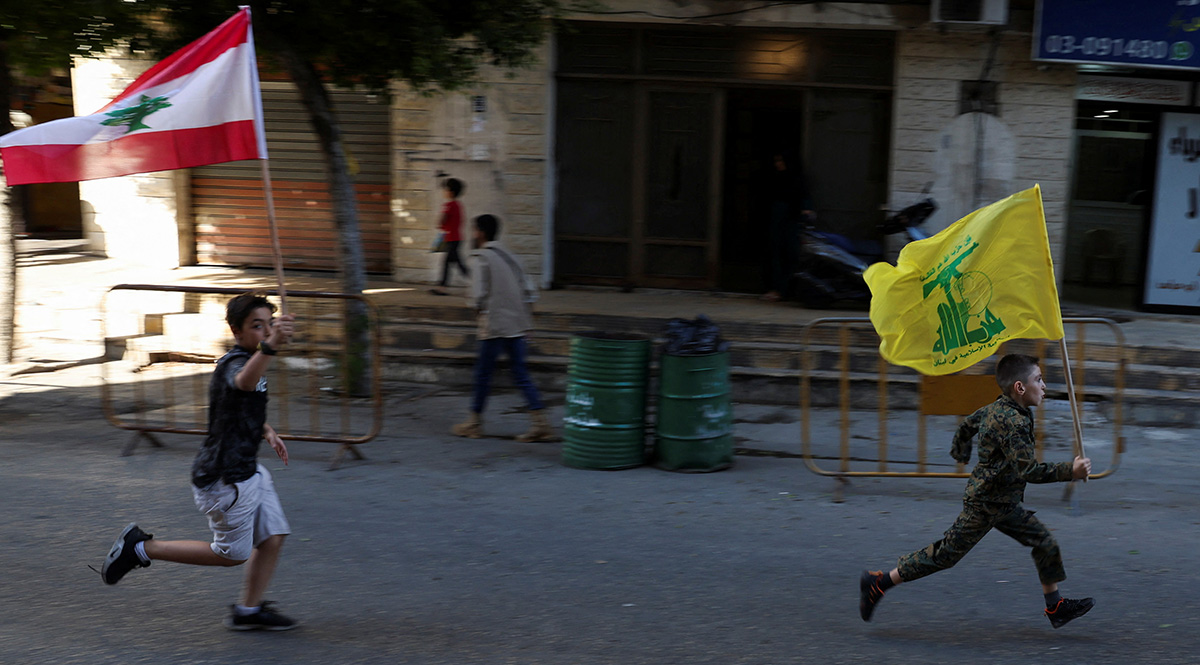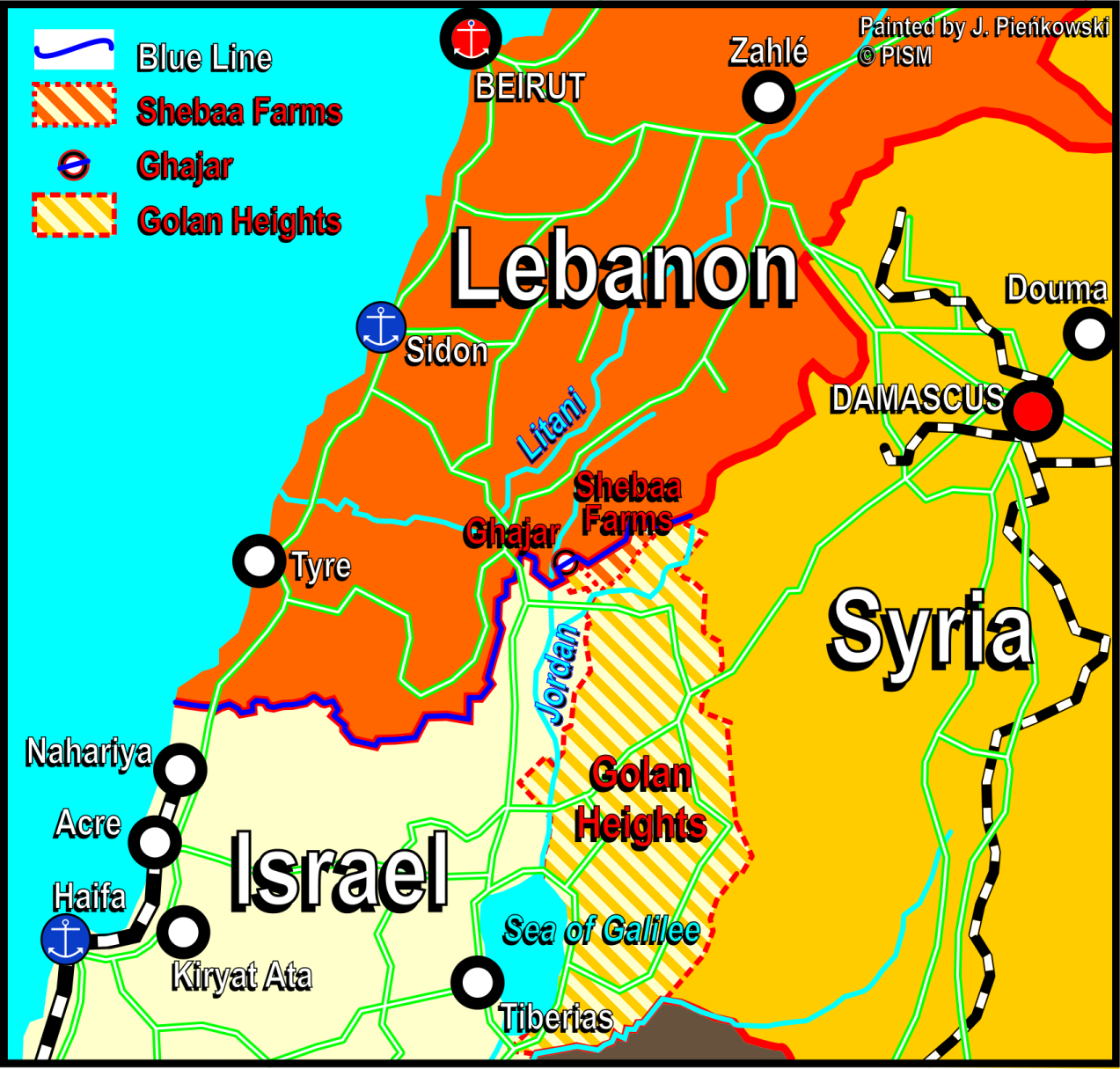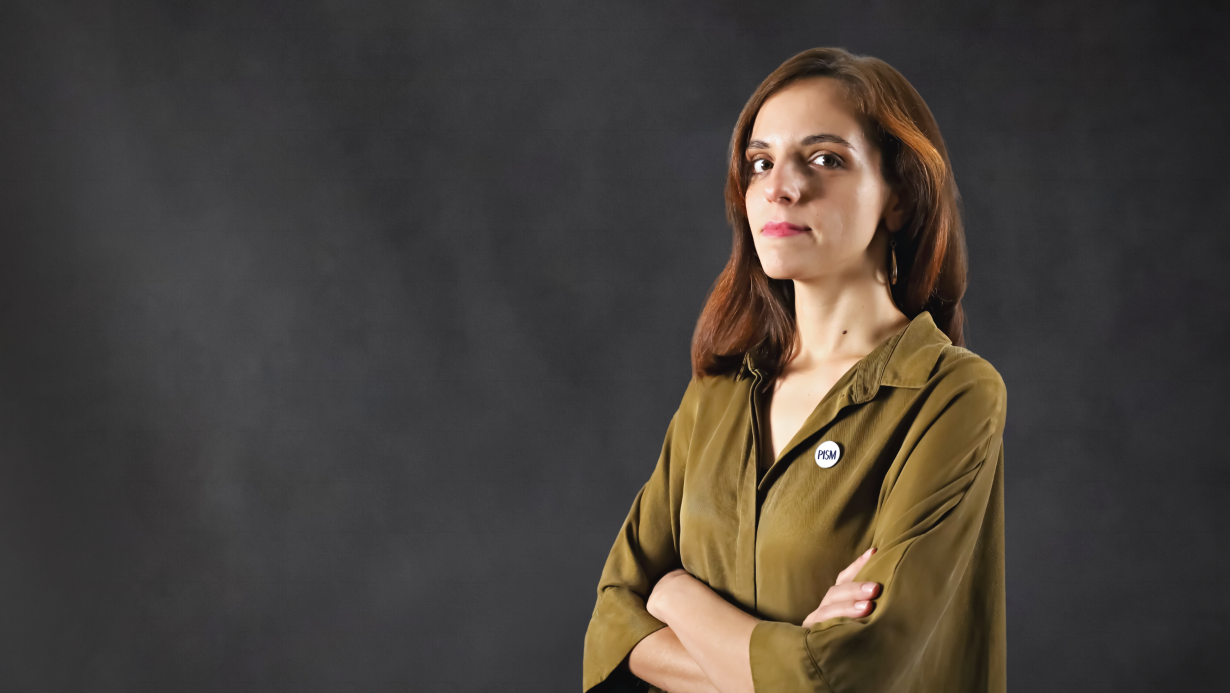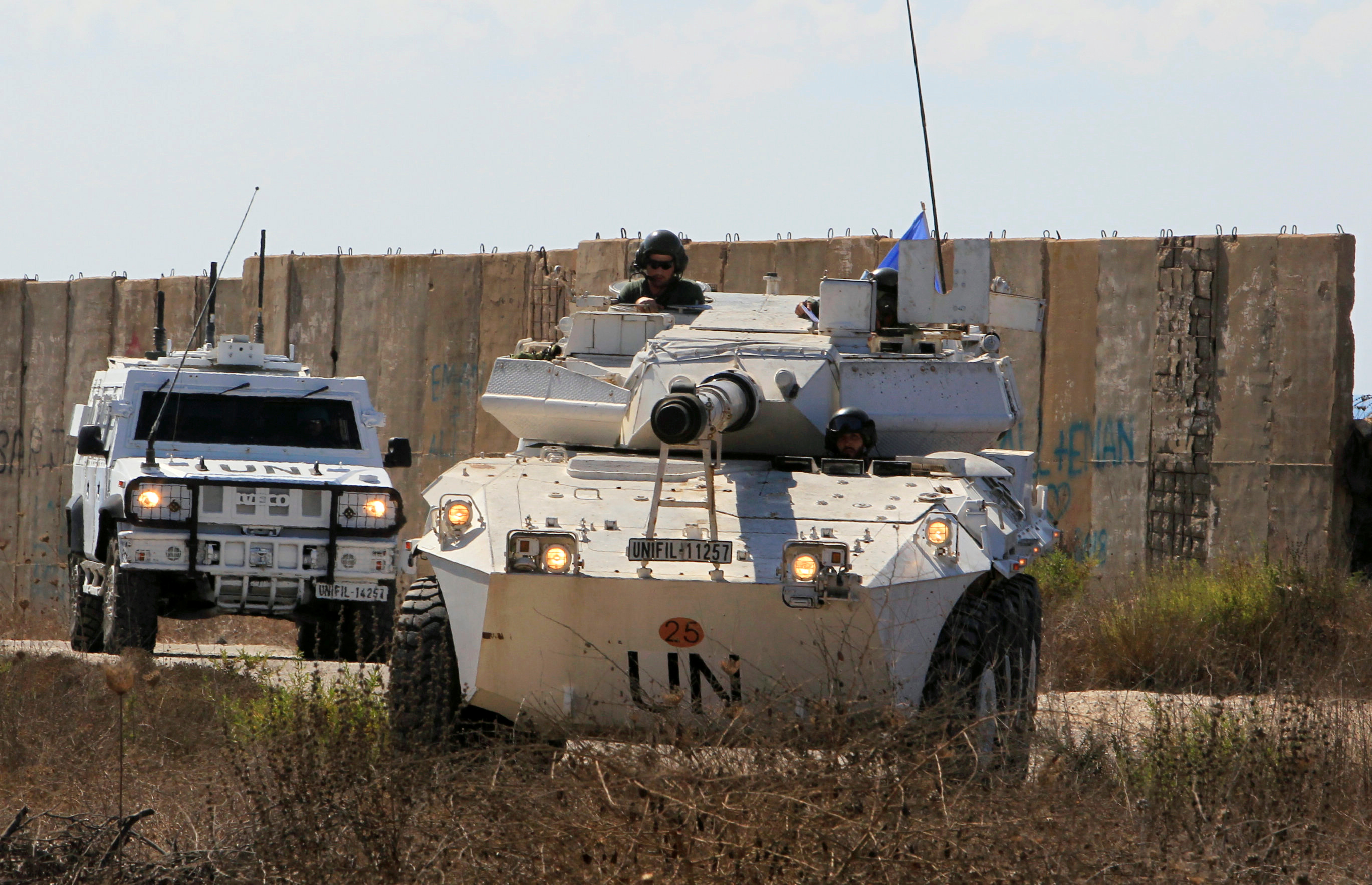Gaza War Burdens Vulnerable Situation in Lebanon
Hezbollah is using the Gaza war to step up pressure on Israel in existing territorial disputes. At the same time, Lebanese opposition to their country’s inclusion in the war with Israel is prompting Hezbollah to become less involved. However, this may change if there are additional Israeli attacks beyond the border territories.
 ESA ALEXANDER / Reuters / Forum
ESA ALEXANDER / Reuters / Forum
The war in Gaza is exacerbating political tensions and the risk of internal escalation in Lebanon. This is linked to the lack of agreement between political parties on the election of a president (appointed by parliament) and on the reforms needed to address the financial crisis the country has been mired in since 2019. The lack of progress prevents the disbursement of funds agreed under the early-2023 agreement with the International Monetary Fund, among other solutions. The internal problems prompt Hezbollah to place more emphasis on mitigating the risk of escalation in Lebanon rather than increasing support for Hamas.
Hezbollah Clashes with Israel
Tensions between Hezbollah and Israel had already been rising since March 2023. They mainly involved the intensification of mutual attacks and the presence of Israeli and Hezbollah troops in disputed territories, such as the village of Ghajar, in an attempt to change the status quo on the still undefined border. In June 2023, Israeli soldiers surrounded part of the village with a fence, which, according to the 2006 UN Security Council (UNSC) Resolution 1701, belongs to Lebanon. In response, Hezbollah deployed two military tents in Kfar Chouba, between Lebanon and Israel, calling on Israel to withdraw behind the Blue Line separating their territories. A few weeks later, Israel shelled Kfar Chouba in response to a Hezbollah attack. At the time, Hezbollah declared that it was ready for open conflict with Israel if it did not withdraw to its pre-June position. The clashes coincided with a vote on the mandate of the UNIFIL peacekeeping mission, in which Polish troops serve. Although the UNSC decided in August 2023 to extend it, China and Russia abstained from the vote, which they justified by the failure to include Lebanon’s demands to remove a point added under pressure from the U.S. and Israel last year allowing the mission’s soldiers to move around the country without coordination with the Lebanese military. Both China and Russia have challenged the UN’s actions in Lebanon as violating the country’s sovereignty, which fits in with Russia’s general narrative of the West’s subjective treatment of Global South states.
Following the Hamas attack on 7 October and the launch of airstrikes on Gaza, the intensification of clashes between Hezbollah and Israel gained an additional dimension. Since 8 October, Hezbollah has attacked Israel more than 600 times and Israel has killed nearly 150 militants. Israel has evacuated about 60,000 residents from the north of the state, while Lebanon has seen the displacement of some 75,000 residents of the south. Nevertheless, speeches by the organisation’s head, Hasan Nasrallah, indicate that he is attempting to keep Hezbollah’s activities below the threshold of open war.
The threat of escalation was particularly heightened after Israel’s successful attacks on Wissam al-Tawili, the head of Hezbollah’s specialised unit, the Radwan Force, and one of Hamas’ top commanders, Saleh al-Arouri, in Beirut in January this year. In retaliation, Hezbollah shelled an Israeli Air Force traffic control base on Mount Meron. At the time, Amos Hochstein, the U.S. Coordinator of International Energy Affairs, who has led the de-escalation effort between Lebanon and Israel since the Hamas attack on Israel, conveyed the conditions necessary, according to Israel, to reach a land border agreement. The Israeli government expects the Radwan Force to be withdrawn beyond the Litani River (nearly 30 km north of the border) in the coming weeks. Israeli authorities have threatened that they are prepared to escalate the conflict with Hezbollah if no progress is made on this issue. Nasrallah has announced that he would be open to negotiations with Israel as soon as it withdraws from Gaza. In addition, in a speech a few days after Arouri’s assassination, he stressed that Lebanon now has the opportunity to regain control of Ghajar, Kfar Chouba, and the Shebaa farms in an attempt to use the tensions over the Gaza war as leverage in territorial disputes.
Lebanon and the Palestinian Question
While Lebanese society and political elites support the idea of a Palestinian state and unanimously recognise Israel as the main threat to the stability of the state, they are critical of the activities of Palestinian organisations in Lebanon. This is due primarily to the history of the violent civil war (1975-1990), which was triggered, among other things, by the conflict between socialist and radical Christian groups over Palestinian activities. Second, clashes between Palestinian factions often spill over into the camps of Palestinian refugee camps in Lebanon (where 250,000-500,000 Palestinians live). The state authorities have limited capacity to suppress clashes in the camps, which are de facto under Palestinian control. In recent years, these actions have mainly taken the form of attempts to undermine Fatah’s authority. Last June, for example, there were riots between Fatah members and radical Islamist organisations in the Ein el-Hilweh camp, which led to the displacement of 4,000 camp residents. Such clashes particularly escalated after 2022 when Hamas resumed relations with the Syrian regime, allowing it to strengthen relations with Hezbollah and increase its presence in Lebanon. From Hezbollah’s perspective, support for the Palestinian organisation contributed to its rapprochement with the Sunni Islamist Lebanese party al-Jamaa al-Islamiyya and the participation of its armed wing in border clashes with Israel. At the same time, the radicalisation of Palestinians in Lebanon is also linked to the difficult living conditions and systemic discrimination (they can only work in a few sectors such as agriculture or construction and only in low-level jobs).
After the start of Israel’s war against Hamas, representatives of Palestinian factions announced their willingness to join the fight against Israel. However, the actions of Hamas and its affiliated organisations from the Lebanese territories require the approval of Hezbollah, which fears that an escalation could lose public support for the party and jeopardise its status as a member of the Lebanese government. Indeed, there is cross-party opposition in Lebanon to its use as fighting territory between Palestinian organisations and Israel. This was underlined by the positions of Christian, Muslim, and Druze party leaders (including Hezbollah allies) against the establishment of a new armed Hamas unit in Lebanon, which they considered a violation of Lebanese sovereignty. In addition, at the beginning of January, extremist Christian organisations hacked into Beirut's airport maintenance systems, and, a result, screens at the airport displayed warnings to Hezbollah, al-Jamaa al-Islamiyya, and Iran against the spread of war into Lebanese territory. However, given the financial and political crisis, which has further weakened the Lebanese military, the state has limited leverage over Hezbollah. This forces the international community to talk directly to Hezbollah, which is considered a terrorist organisation. Such efforts were made last year by, among others, the UN Special Coordinator for Lebanon, Joanna Wronecka.
Conclusions and Perspectives
Hezbollah is attempting to use the war in Gaza to strengthen its role in the Israeli-Palestinian conflict by supporting Hamas. At the same time, it is consolidating its position on the disputed territory on the Israel-Lebanon border, taking advantage of the social legitimacy provided by the longstanding tensions on the border and the violation of Resolution 1701 including by Israel. This is furthermore to help it maintain its image as an organisation that is indispensable for the defence of south Lebanon against Israel, and that acts primarily in the interests of the Lebanese people, independently of Iran and the Palestinian issue. The successful linking of the Gaza war with the border land dispute shows that the lack of a Lebanese-Israeli agreement works in Hezbollah’s favour, reducing the risk to its image in Lebanon caused by supporting Hamas. In this context, the death of senior Hamas members residing in Lebanon may be in the interest of Hezbollah, which seeks to control the militias operating in Lebanon so that their involvement remains within the rules of engagement. However, further Israeli attacks outside the border territories may increase popular support for increased attacks by Hezbollah and its allies.
The risk of an escalation of the conflict with Israel has brought the presence of Palestinians and Palestinian organisations in Lebanon back as important elements of domestic politics. Given the tensions involved, the Lebanese authorities are compelled to work with Hezbollah to deter Palestinian militants from larger-scale attacks. International organisations could increase support for Palestinians living in Lebanon to reduce factors that increase the risk of their radicalisation. Strengthening the capabilities of the Lebanese army and UNIFIL operations will also be important, which Poland could include in the next budget for the Polish contingent in Lebanon.






